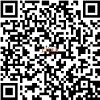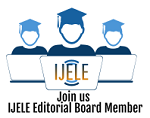(2) Obsa Neme
(3) Tesfa Alemu
(4) Mulualem Getachew
(5) Fedila Abazinab
(6) Damtew Bulbula
*corresponding author
AbstractCommunication capacity (Speaking skill) in English language education is a difficult task that needs effective guidance and sustainable practice. Therefore, this study aimed at exploring the Implementation of Teaching and Learning English Speaking Skills in Ethiopian EFL Classes. The design of the study was descriptive survey. There were 523 students included using a simple random sampling technique and 30 EFL teachers using an availability sampling technique. To collect data, questionnaire for students and Focus Group Discussions for teachers were used. Mixed method data analysis was used. The results showed that EFL teachers were not using different techniques to teach English speaking skills, and they were not making sustainable follow-ups on how learners performed. They also apply the teacher-centered method rather than the learner’s method. Learners face challenges from their mother tongue's influence, lack of confidence, and fear of making a mistake. EFL teachers were also challenged by student-related problems like being disinterested in being involved in the actual teaching and learning actively, uncomfortably of the school compound, absence of well-equipped English mini-media, and the bulkiness of the textbook. Thus, EFL teachers should use various techniques, school administration should avail the resource and students should be participatory in their learning.
KeywordsEFL; English speaking skill; Language Education; Teaching and Learning
|
DOIhttps://doi.org/10.31763/ijele.v5i3.1173 |
Article metrics10.31763/ijele.v5i3.1173 Abstract views : 1288 | PDF views : 367 |
Cite |
Full Text Download Download
|
References
[1] D. Asfaw Bulbula, T. Alemu Bulti, and E. Yaya Sada, “EFL Teachers’ Practices and Implementations of Speaking Activities in Ethiopian English Textbooks,†Educ. Res. Int., vol. 2021, pp. 1–11, Sep. 2021, doi: 10.1155/2021/8696278.
[2] Y.-J. Wang, H.-F. Shang, and P. Briody, “Investigating the Impact of Using Games in Teaching Children English,†Int. J. Learn. Dev., vol. 1, no. 1, pp. 127–141, Oct. 2011, doi: 10.5296/ijld.v1i1.1118.
[3] W. M. Rivers, Teaching Foreign Language Skills Rev Ed. University of Chicago Press, 1981. doi: 10.7208/chicago/9780226518855.001.0001
[4] D. Nunan, Second Language Teaching & Learning. ERIC, 1999.
[5] H. Temam, “Students’ Major Problems in Learning Speaking Skill at Jimma Teachers' College.†Jimma University, 2013.
[6] X.-W. Chen and H. Hashim, “The Effect of Vlogging on Year 5 ESL Students’ Speaking Performance,†Creat. Educ., vol. 13, no. 02, pp. 698–716, 2022, doi: 10.4236/ce.2022.132044.
[7] O. Tamiru, “Students’ and teachers’ use of English as the medium of instruction in Nekemte Town grade 9 history and geography classes: oral interaction in focus,†Unpublished Ph. D. Dissertation, Addis Ababa University, Addis Ababa, Ethiopia. 2013.
[8] B. O. Gudu, “Teaching Speaking Skills in English Language Using Classroom Activities in Secondary School Level in Eldoret Municipality, Kenya.,†J. Educ. Pract., vol. 6, no. 35, pp. 55–63, 2015.
[9] X. Huang and X. Hu, “Teachers’ and Students’ Perceptions of Classroom Activities Commonly Used in English Speaking Classes,†High. Educ. Stud., vol. 6, no. 1, p. 87, Dec. 2015, doi: 10.5539/hes.v6n1p87.
[10] A. Guye, “The Practice of Teaching Speaking Skills at Ayertena Secondary School.†MA Thesis. Addis Ababa, 2011.
[11] S. Tilahun, “Assessing the Challenges of Teaching Speaking Skill in a Large Classroom in Ethiopian context,†The Case of Grade Nine at Arerti Preparatory School. Haramaya University, Haramaya. 2013.
[12] A. Abebe, “A Study on the problems that affect students’ English speaking skill: Homecho Secondary School in focus, SNNPR,†Unpublished MA thesis. AAU. 2015.
[13] C. . Kothari, Research Methodology: Methods and Techniques. Jaipur: New Age Publishers, 2004.
[14] H. W. Seliger, E. G. Shohamy, and E. Shohamy, Second language research methods. Oxford University Press, 1989.
[15] J. Atkins, H. Banteyerga, and N. Mohamed, “Skills Development Methodology: Part one,†Department of foreign Language, Addis Ababa University. 1995.
[16] A. Mahboob Ahmed Al-Hassaani and A. Fadhl Mahmood Qaid, “Challenges and Strategies in Teaching Speaking Skills to the Yemeni EFL Learners at Aden University: A Case Study,†Arab World English J., vol. 12, no. 1, pp. 498–514, Mar. 2021, doi: 10.24093/awej/vol12no1.32.
[17] A. W. Gathumbi and S. C. Masembe, Principles and techniques in language teaching: A text for teacher educators, teachers, and pre-service teachers. Jomo Kenyatta Foundation, 2005.
[18] S. Jejo and S. Haji, “Teaching Strategies to Increase EFL Speaking Skills in a Communicative Learning Environment.†Malmö universitet/Lärande och samhälle, 2020.
[19] M. Liu, “Changes in and Effects of TED Talks on Postgraduate Students’ English Speaking Performance and Speaking Anxiety,†J. Lang. Educ., vol. 7, no. 3, pp. 104–118, Sep. 2021, doi: 10.17323/jle.2021.11632.
[20] Z. Alimorad and S. Yazdani, “Self-Image Improvement and Iranian EFL Learners’ Oral Performance: Effects on Complexity, Accuracy, and Fluency,†J. Lang. Educ., vol. 6, no. 4, pp. 11–29, Dec. 2020, doi: 10.17323/jle.2020.9772.
Refbacks
Copyright (c) 2023 Dereje Asfaw Bulbula

This work is licensed under a Creative Commons Attribution-ShareAlike 4.0 International License.

International Journal of Education and Learning
ISSNÂ 2684-9240
Published by Association for Scientific Computing Electronics and Engineering (ASCEE)
W : http://pubs2.ascee.org/index.php/ijele
E : zalik@ascee.org

This work is licensed under a Creative Commons Attribution-ShareAlike 4.0 International License.






















